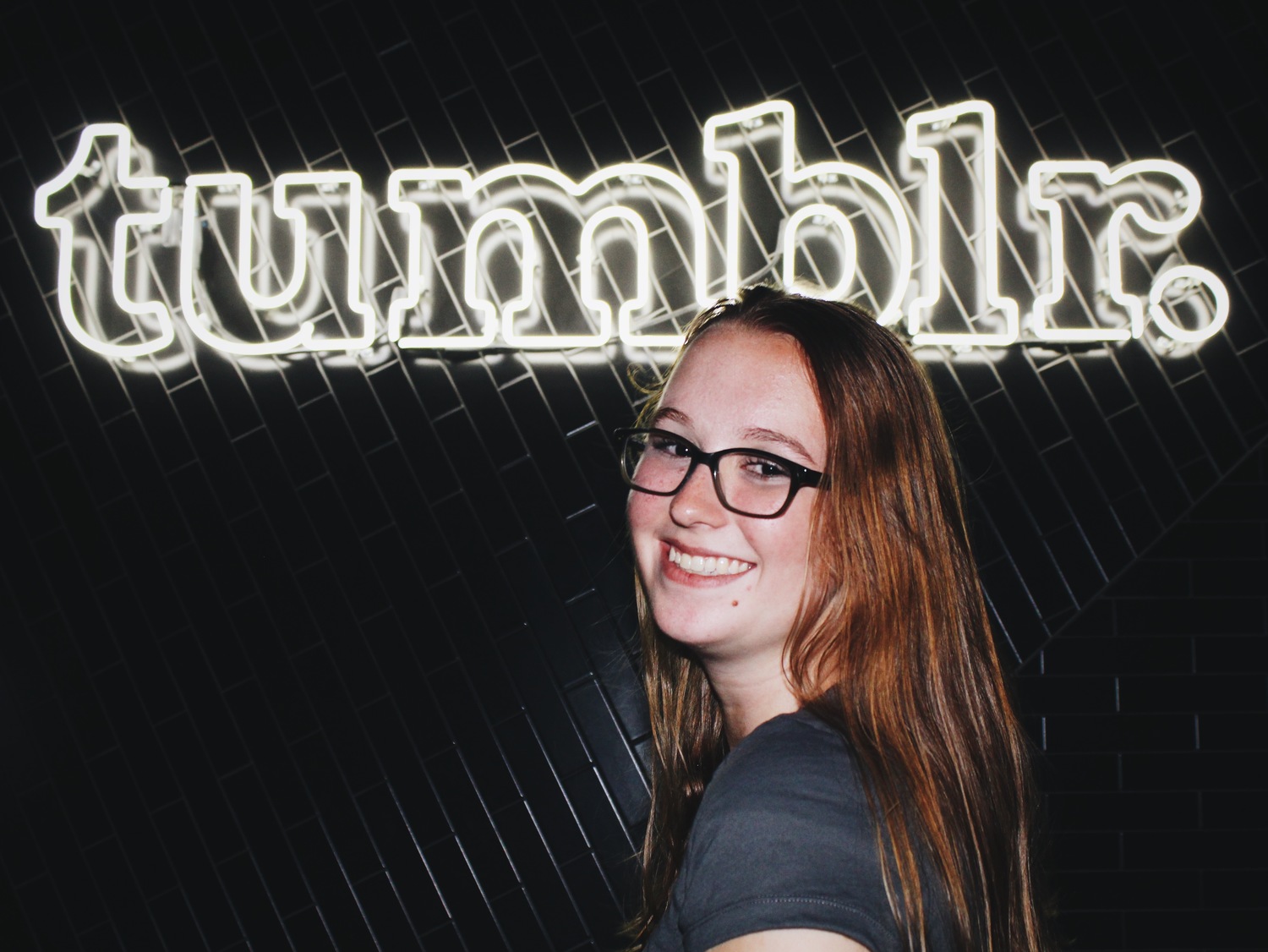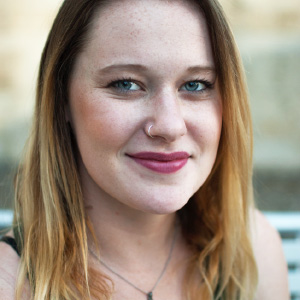Although just starting her sophomore year at Cornell University for electrical and computer engineering, Caitlin Stanton, nineteen, has helped organize and founded her own national events to bring coding to other students interested in computer science. As a former participant in Girls Who Code—an organization dedicated to sparking high school girls’ interests in computer science and coding—Stanton is an active advocate for bringing more women into the STEM field in a professional culture dominated by men.
Stanton’s interest in computer coding culture was not something she grew up wishing she could be apart of. As a New York City native, surrounded by some of the grandest buildings and skyscrapers in the country, architecture was her first interest. That all changed when her parents encouraged her to sign up for an intensive summer immersion program with Girls Who Code to learn computer programming basics. “I was apathetic to the idea,” Stanton says. “I wasn’t super enthusiastic about spending my summer in a classroom, but I appeased my parents by signing up.”
Stanton’s attitude toward coding and the program itself, changed almost immediately upon entering the program. She learned she had the passion for computer coding that she hadn’t realized before in her high school learning environment, and would later attribute the program to launching her into a career as a coder, while gaining a network of supportive women that would become friends for life.
“They really started me off in understanding how hands-on computer science can be,” she says, “it’s not just strictly math. I enjoy the application of it, which is something that wasn’t taught to me necessarily in high school. After Girls That Code, I just kind of dove into every computer science opportunity I could think of.”
And dive she did. Returning to Stuyvesant High School after her summer of coding, Stanton started taking more computer science classes, looking to online tutorials for additional instruction and found herself drawn into hackathon culture. Participating in hackkathons once a month in the NYC area that would span a total of twenty-four hours over the period of a weekend, Stanton would round up her fellow group of Girls Who Code teammates and compete to create a product in a very short amount of time while learning new coding techniques and technologies throughout the course of the hackathon, “which is more of a realistic approach to computer science,” she says.
While garnering the skills needed for success through her continued education within hackathons, Stanton started looking for opportunities to grow professionally while in high school too. Interning the summer preceding her senior year, Stanton worked under the #BUILTBYGIRLS brand at what was then AOL. Working with a team of other high school girls on the cambio.com website, while meeting with real business executives and gaining important industry contacts, gave Stanton a greater appreciation for the business of coding and how it can be applied to a real-life product that grows from a simple, or not-so-simple, line of code.
“I have always had an affinity for math and science and have always liked learning new things that are more application based,” says Stanton. “My brain understood if you write this line of code, it’ll do this…I can think more cause and effect, and that was something that came really naturally to me.”
Using the skills she learned through her #BUILTBYGIRLS internship by interacting with corporate sponsors, in addition to her continued interest in hackathons, Stanton became interested in co-founding the “def hacks()” hackathon. Def hacks() became a bicoastal twenty-four hour hackathon created for high school students, by high school students like Stanton, to answer for the discrepancy of most programs being geared toward college-level-or-above coders.
“My motivation for every hackathon I run is to provide a more catered experience to the fact that they don’t necessarily have as many opportunities to code or learn to code and maybe need a different kind of environment or mentors,” says Stanton.
Assuming the role of head organizer for PixieHacks()—a twelve hour high school level hackathon designed “to immerse females in the tech world”—Stanton became increasingly interested in creating spaces for women where they could work together, support each other and learn new skills in a space typically dominated by men.
As Stanton transitioned from high school to college, “these hackathons have been growing along with us,” she says. Inspired by the success of PixieHacks(), she has been actively organizing and co-founding another hackathon organization during her time at Cornell, ProgramHers, “that would follow these girls from when they start learning how to code, to when they go to hackathons, to when they want to run their own events, or go to internships,” says Stanton.
The other program that she is co-founding, FwdCode, is a direct answer to the increasingly polarized political climate that has driven a wedge between those in many communities, including the tech world. “Recently college students have become more politically active and the debates have become more polarized,” she says. “We want to bring people together in areas that aren’t as tech heavy and hackathon heavy, to come from different parts of the country to work together on issues that affect all of us as a population, not just as people with different ideologies.”
As a woman in tech who recognizes discrepancies in those afforded more opportunity or resources, Stanton has dedicated herself to creating these organizations to bridge the gap between the educationally privileged and those that are lacking due to uncontrollable circumstances such as race, neighborhood, school and socioeconomic status. “By providing events that hopefully will be able to move across the country and [to] different people, from different areas and backgrounds, hopefully we can all be moved onto a similar playing field so that everybody has a spot at the table and everybody can bring their own perspective and really make innovation a lot more well rounded as far as who the products are geared towards,” she says.
Combating sexism and the much smaller number of women in coding compared with their male counterparts is a huge motivation for Stanton’s work as well. This school year she is working to establish an all women’s engineering sorority, Alpha Omega Epsilon, as an answer to the co-ed engineering fraternity already in place at Cornell to give women a safe space to garner professional skills in tech and support each other in an often subtly sexist environment. Working on the board for Cornell’s Women in Computing club is just another small piece in creating safe and inclusive environments for the interest of women in computer science to grow, without the added pressure of microaggressions and undermining comments based upon sex.
“Like all the other programs I’ve done it’s making sure everybody has equal opportunities and making sure we address the kind of biases that society has inherently placed and make sure that those—at least within the Cornell community—are addressed and handled in a way that we can make sure that everybody is comfortable, supported, within tech, and even in other majors, which is something that is prevalent everywhere unfortunately,” says Stanton. “That’s our big goal and it will probably be our goal for awhile, making sure that we tackle it as best as we can.”

















